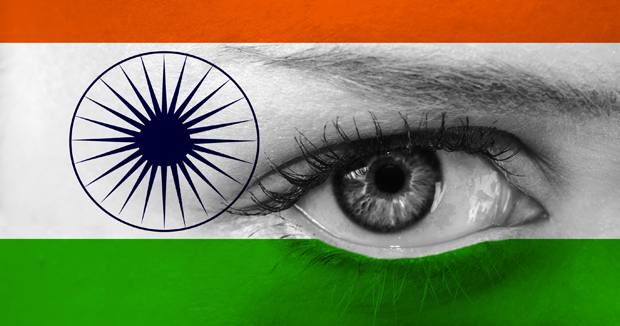31 Mar 2014 | Digital Freedom, News and features, United States

(Illustration: Shutterstock)
Reforms can be a deceptive thing. They can be particularly deceptive when covering the intelligence community, which is notoriously resistant to legislative meddling it tends to find intrusive.
Last week, Congress and the White House were a flurry with proposals to alter the nature of bulk collecting of calls and communications of American citizens under the Patriot Act. In a statement released through the American Civil Liberties Union, Snowden went so far as to see this as “turning point”. “I believed that if the NSA’s unconstitutional mass surveillance of Americans was known, it would not survive the scrutiny of the courts, the Congress, and the people.”
Three plans are on the table – the USA Freedom Act (otherwise known as the Leahy-Sensenbrenner bill), the more conservative House Intelligence Committee Bill (the Ruppersberger-Rogers bill), and the President’s own proposal. The latter has yet to mutate into the language of legislation, but is by the far the most important one to date. For that reason, it deserves greatest scrutiny.
All the proposals, in some measure, deal with the operation of Section 215 of the Patriot Act. The provision facilitates current bulk collection and remains a creature of the post-September 11 2001 era, when the Bush administration extended the surveillance state with knee-jerk enthusiasm. Defenders of the provision argue that metadata gathered under the program remains vital in identifying links between terrorist cells inside the United States. Privacy advocates remain unconvinced by the inefficiency of a program that has been affirmed.
President Obama’s proposal involves allowing phone companies to retain their databases of records in standardised, interoperable format. The reason behind this is to allow government officials quick and easy access to the material when required. The focus on storage will shift from government agencies – a main bone of contention for privacy advocates – to telephony companies. There is an additional oversight measure – the NSA would, in obtaining access, have to seek an order from the Foreign Intelligence Surveillance Court. In turn, the FISC would have to be satisfied that the records pertained to a person connected with a terrorist organisation.
The enthusiasm for the changes last week was certainly evident, suggesting the administration had struck a delicate balance between privacy and security. In Obama’s own words, “I am confident that this approach can provide our intelligence and law enforcement professionals the information that they need to keep us safe while addressing the legitimate privacy concerns that have been raised.”
Reuters stated that the Obama administration had “announced details of its plan to end the government’s vast bulk collection of data about phone calls made in the United States”. Even more cautious observers, such as Jameel Jafeer, suggested that this was “an acknowledgment that a program that was endorsed in secret by all three branches of government, and that was in place for about a decade, has not survived public scrutiny.”
For all that enthusiasm, Jafeer would also suggest that various operational matters needed clearing up. What would, for instance, be the governing standard of suspicion the FISC would use in its judicial deliberations? There is every suggestion that the reforms are driving down the standard of suspicion required in various cases – from “probable cause” to “reasonable suspicion”. For that reason, it would be difficult to see refusals to government petitions except on rare occasions. The FISC will continue being a formalised rubber stamp.
A looming question here is what constitutes a “phone record” for the purposes of Obama’s reforms. Phone records obtained by national security letter statutes and the pen register would need to be incorporated into the reforms – to not do so would render any changes futile..
There is a striking addition to the NSA’s powers that will take place if Obama’s current proposals go through in their current form. The NSA would only be losing authority to collect and hold telephone calling records for up to five years from landlines. Telephony companies will be expected to hold records for up to 18 months. More than adequate compensation is being offered to the NSA’s apparent trimming of data access. The compromise has come in the form of collecting cell phone data, a considerable expansion of power given that the NSA claims that only 30 per cent of all call data of the country is being tapped into.
This in itself is a curious suggestion, given that the NSA is already gathering up to 5 billion records a day on the location of cell phones around the globe. Presumably, local coverage in the US of cell phone data has been skimpy, at least relative to land lines.
It should come as little surprise that the agency’s chief, the retiring Gen. Keith Alexander, was enthusiastic for a solution that would, in effect, enhance NSA coverage while having metadata from landlines restricted. His lobbying of Congress has been particularly frenetic, given that the collection authority of the agency will expire in 18 months. The drafters have been busy, and Obama has been dismissive of suggestions by such NSA critics as Democratic Senate Judiciary Committee Chairman Patrick Leahy to let the program lapse into oblivion. In that, the President has the support of the House Intelligence Committee members, Republican Mike Rogers and Democrat Dutch Ruppersberger, whose “End Bulk Collection Act” replicates the spirit of Obama’s proposals.
For that reason, privacy advocates can only count the latest measures, notably those of the Obama administration, as refined efforts to enhance surveillance rather than roll back metadata collection. The principle remains only the practice is being tweaked and effectively granted a legal varnish.
27 Mar 2014 | India, News and features, Pakistan

(Photo illustration: Shutterstock)
Shapoorjee Sorabjee, the first historian of cricket in India, had cautioned more than a century ago in 1897- “… to expect all political difference to disappear or all available self-interests to be foregone on the institution of cricket relations is to live in a fool’s paradise.” Sorabjee’s words echo loudly in the persecution of 67 Kashmiri Muslim students in the city of Meerut on March 6. Historian Ramachandra Guha’s statement- “post-independence, cricket was equated with patriotic virtue”, echoes louder.
These local college students had cheered the Pakistan cricket team which trounced India in a cricket tournament. In normal circumstances, cheering a team would not have been considered perfidious or criminal. Unless of course one is thrown back to 1945, when Orwell acerbically noted that there’s nothing like certain spectator sports to add to the fund of ill-will between nations and their populations. Or, more recently, to the times of Norman Tebbit and David Blunkett for whom a cricket match was the perfect crucible to test one’s loyalty to his country.
But Indo-Pak cricket matches are anything but “normal”. On the Indian side of the border, they are nothing but battles to be won, and once victory has been achieved, to be celebrated by humiliating, vilifying and demonising “the other”, that is, Muslims. And when there are Kashmiri Muslims, the viciousness is increased manifold.
So it happened that these students were charged with sedition, which under Indian criminal law, is equivalent to treason, and carries a maximum sentence of life imprisonment. The Bharatiya Janata Party (BJP), which in its present incarnation can give the British National Party and United Kingdom Independence Party lessons in jingoism and xenophobia, quickly bared its fangs, and raised a din about bringing these “terrorist” students to justice. Not unsurprising, when its senior leader and a proclaimed patron of cricket, states with pride that cricketing nationalism is an integral aspect of a person’s national identity. When the charges were withdrawn following a loud backlash, the BJP rushed to the election commission alleging that the ruling party in Uttar Pradesh (where Meerut is located) was violating the poll code by this act of pandering to anti-national Muslims.
This sordid affair brings back memories of March 2003. The police top brass in Calcutta had planned how to prevent Muslims from supporting Pakistan during the World Cup quarter-final against India. When India won, a precedent of sorts was set- the army chief, the prime minister and deputy prime minister rang up the players and congratulated them. Such praise is usually reserved for occasions when the team wins the tournament, and not a particular match. In Ahmedabad, riots broke out when Muslims were prevented from celebrating India’s win.
It is easy to excoriate the Hindu right wing parties, but rabid Islamophobia is par for the course in so far as they are concerned. The Meerut incident demonstrates a new use of sedition initiated not by the usual suspects but by a state government which professes to be secular.
An incident of 2010 brings out the novelty factor. Arundhati Roy had criticised the government for decades of brazen civil rights violations in Kashmir, and demanded that the people of the disputed territory be allowed to exercise their right of self-determination. The “patriotic” Hindu right went ballistic, and demanded that she be tried for sedition and also deported. Charges were pressed, and even some sections of the media were complicit in an all-out attack against her, as this report details.
But Meerut is not the bastion of the rabid fundamentalists, so what could have happened? The answer is found in the antecedents of the college administrators who went to the police in the first place. The rector and chancellor are a retired police officer and army general, respectively. Representatives and agents of the Indian state, which has always used the sedition law to squelch dissent and perpetrate impunity. Almost like Omar Abdullah, the chief minister of the state of Jammu & Kashmir, who exposed his real stance by calling the charges harsh and unacceptable, and in the same breath, labelled the students’ actions as “wrong and misguided”. But more striking is the cynical opportunism by the government of Uttar Pradesh. It had done nothing to stop the bloody riots in Muzaffarnagar last year but beat the tin drum of it being “secular” to the core. Taking it one step further, it used a law described as “objectionable and obnoxious” by none less than India’s first prime minister Jawaharlal Nehru, to curry favour with the majority Hindu constituency on the eve of national elections.
Whoever thought that the odious doesn’t have its productive uses?
This article was posted on March 27, 2014 at indexoncensorship.org
21 Mar 2014 | Europe and Central Asia, News and features

(Image: Theo Schneider/Demotix)
Serbia is in the process of forming a new government. Following the Progressive Party ‘s (SNS) landslide victory in Sunday’s elections — securing 48% of the votes and 156 of 250 parliamentary seats — one man in particular holds the keys to the country’s future. Leader Aleksandar Vucic, Deputy Prime Minister in the previous coalition, is dropping the prefix and taking the top spot this time around.
While at 44, he would be a relatively young leader, he has had plenty of experience in high politics. Indeed, back in the 90s, he served as Minister of Information under Slobodan Milosevic. Many people spend their twenties trying figure out what to do with their lives. Vucic, meanwhile, was busy introducing a notoriously hardhanded media law, among other things, introducing fines to punish journalists and banning foreign media. As he now prepares to take office, should Serbia’s press be worried?
On the one hand, Vucic has worked hard to shift his image from hardline nationalist, to pro-EU reformer, his focus firmly fixed on Serbia’s struggling economy. He has gone after some of the country’s biggest financial criminals in a high-profile anti-corruption campaign. He has pushed for normalisation in the strained relationship with Kosovo, to put EU accession on track. On election night, the Foreign Minister of the United Arab Emirates, Sheikh Abdullah bin Zayed al Nahyan, could be found celebrating with Vucic at the SNS headquarters. The man who once said that 100 Muslims should be killed for every Serb, is securing loans in the billions from the UAE to help fund ambitious regeneration projects in Belgrade.
Yet, despite this apparent commitment to transparency, and despite claiming freedom of the media as one of his “five priorities” — his own personal regeneration, if you will — big words have not really translated into action when it comes to Serbian press freedom.
The country’s journalists have long been working under less than ideal conditions. From the direct, physical threats suffered under the Milosevic regime, to repressive legislation, free expression has been well and truly chilled. But the biggest challenge today is soft censorship, according to the Balkan Investigative Reporting Network (BIRN).
“Press freedom in Serbia is mostly endangered by soft censorship meaning that it is mostly endangered by discriminatory and un-transparent allocation of state funding towards media outlets. This money is usually used to reward those who are in favor of the government and to punish those who oppose it. As opposed to direct threats, soft censorship is much harder to detect,” BIRN’s Tanja Maksic told Index.
“In [the] last year and a half of the Vucic and [former Prime Minister] Dacic government, we haven’t witnessed much of the determination to stop this undemocratic practice,” she adds.
Indeed, evidence points to the Prime Minister to-be doing the exact opposite. A recent report analysing election content on TV showed that the Progressive Party, and Vucic specifically, were favoured in the, overall strikingly positive, coverage. And back in February, a video adding satirical subtitles to genuine footage showing Vucic rescuing a boy from a snowstorm, was taken down. The video, originally from public broadcaster RTS, was removed over copyright infringement claims, despite campaigners arguing it did not break copyright laws. Authorities are widely believed to have played a part in the removal. A number of websites that had published it were blocked or attacked from within the country, while individuals behind the sites saw their social media profiles hacked. The claims made in the subtitles — that the whole report was staged to paint Vucic in a favourable light ahead of the elections — might have cut too close to the bone.
Vucic’s alleged control over sections of the Serbian media is perhaps most evident in the case of former Economy Minister Sasa Radulovic. Following his resignation, not long before the eventual collapse of the previous government, he was, without explanation, dumped from a popular TV talk show. The last-minute replacement? Aleksandar Vucic. Radulovic soon tweeted that he couldn’t wait to tune in to the evening’s show “to figure out why I resigned”. He followed this up by publishing an explosive resignation letter, accusing the government, including the anti-corruption crusading deputy prime minister himself, of corruption. He added that he’d been subjected to a “media lynching” by tabloids friendly to the government, that self-censorship is rife in Serbian media and that “news is being smothered”. The letter was covered by state-funded news agency Tanjug, but the report was removed within minutes and only republished following complaints.
Lily Lynch is the co-founder and editor of Balkanist, an independent online magazine covering, as the name suggests, the Balkan region. They have first-hand experience of Serbia’s restrictive media environment, once having their power cut for three days after publishing government leaks. She says Vucic has been “disastrous” for Serbian media, and believes that with his newfound, unchecked power they will see “more censorship”.
“I think that self-censorship will likely get even worse than it already is, as compliance with the status quo is often the only way to keep a job in Serbia,” she explains to Index. “Independent media outlets like Pescanik will be allowed to work because their audience is small and marginal, and their existence actually benefits Vucic because he can cite them as evidence that there is media freedom in Serbia. Meanwhile, the media that the majority of the country reads or watches will continue to depict Vucic as the savior of the nation.”
This depiction seems to have made an impact beyond Serbia’s borders too. Vucic’s pro-EU stance, and especially his perceived pragmatism regarding Kosovo, has boosted his international profile. He’s been labelled “the man bringing Belgrade in from the cold”, and American ambassador Michael Kirby has even praised Serbia’s media freedom.
It is, however, also worth noting certain cracks in this image within Serbia. The turnout figures of 53.2% — following the downward trend of previous elections — would suggest the adulation among the population is not as widespread as on first glance. The Facebook group “I did not vote for Vucic”, set up on election day, with its some 2,400 likes and counting, might point to the same.
Tanja Maksic says the real test for the Vucic government will come with adoption of much needed laws prescribing stricter control of media funding from public budget. If these are passed and implemented it “will be a clear demonstration of a new political will to pass the reforms in media sector,” she adds.
Lynch is not optimistic. She says there is a real danger Serbia could go the way of Hungary, a country that under the leadership of Victor Orban has witnessed the state of media freedom nosedive. She is not the only one to make the link. A recent Radio Free Europe/Radio Liberty asks if Serbia “is headed for Orbanization”?
“Vucic has used the media as mouthpieces to denounce opponents, smearing them and accusing them of crimes without evidence. I definitely think this will continue. Others say “everything is up to Vucic now, he has no one to excuses anymore” but he has attained this level of power and will not let it go so easily. Anything that goes wrong will be the fault of some minister or other, who will be sacked and humiliated in the press so that Vucic is not viewed as responsible in the eyes of the public,” Lynch says.
“Vucic’s arrests and “anti-crime crusade” has made many public persons, including journalists, very afraid.”
This article was posted on 21 March 2014 at indexoncensorship.org
18 Mar 2014 | Asia and Pacific, News and features, Pakistan

(Image: Aleksandar Mijatovic/Shutterstock)
Pakistan’s record of abuse of its dubious blasphemy law has been criticised by a report from the US Commission on International Religious Freedom. The country currently has 14 individuals known to be on death row while 19 others are serving life sentences on charges of committing blasphemy.
Take for example the case of Aasia Bibi, accused of insulting the prophet Muhammad. The 45-year old Christian and mother of five says she was “falsely accused to settle an old score”. In jail since June 19, 2009, she has yet to have her appeal heard. Sameena Imtiaz, founder of Islamabad-based Peace Education Development Foundation (PEAD) says the commission’s findings are another “reminder of the religious intolerance that has permeated the society at large”. The hearing on March 17, before the Lahore High Court was “cancelled by order” yet again, informed her lawyer Mohammad Yasin Badar, who does not know the reason. “I got a text message from the court,” he said but surmises: “This is a very sensitive case.”
But while Bibi may be only Pakistani woman to have been sentenced to death for blasphemy, she is not alone. In November 2013, a 72-year old homeopath doctor Masood Ahmed, a British national of the minority Ahmadi sect, which has been declared non-Muslim by the constitution, was jailed for discussing Islam — a criminal offence punishable with death under Section 295-C of the Pakistan Penal Code (PPC). His conversation was filmed using a mobile phone in which he is seen reciting verses from the Quran. He has been released on bail. Then there is a mentally ill, 69-year-old British citizen, Mohammad Asghar, convicted in January this year, for sending letters proclaiming he was Prophet Mohammad. He remains in prison today.
The original blasphemy law, drawn up by the British and amended in 1986 by then-dictator General Zia-ul-Haq, puts in place a mandatory death sentence under section 295-C. Imtiaz says since the amendment more than a 1,000 cases have been registered against Ahmadis, Christians, Hindus and even Muslims.
The National Commission for Justice and Peace has also been keeping a close watch on the numbers. According to them, from 1987 to 2013, as many as 1,281 people have been charged, of which 616 are Muslims, 474 Ahmadis, 171 Christians and 20 Hindus.
Pakistan has never executed anyone under the offence but the between 1990 to 2012, several of the accused have been killed in associated vigilante violence outside the courts or in prisons.
According to a report by the Islamabad-based Center for Research and Security Studies, since 1990, extra judicial murders of 52 accused have taken place.
In its State of Human Rights in 2012 report, the independent Human Rights Commission of Pakistan states: “Abuse of the blasphemy law continues to take a heavy toll in terms of human lives and harassment of citizens.”
“The sheer number of cases registered in the past 25 years suggests the law has been widely abused,” concedes Imtiaz, adding that investigations have revealed that often the reasons for the abuse stem from personal enmity, property disputes, religious hatred.
“Decades have passed but none of the governments that followed, found the courage to repeal the discriminatory laws that have contributed significantly to intolerance, violence, bigotry, hate and injustice in the country,” says Bushra Gohar, a senior member of the Awami National Party. A legislator in the last assembly, she had submitted a bill in the assembly for the repeal of the blasphemy clauses inserted by Zia ul Haq, but it was never tabled in the assembly.
And for that reason, says Imtiaz there was an urgent need for debate to include “all segments of society on the pros and cons of the law and how it is abetting religious intolerance”.
In the meantime, she said, “an effective counter law that prohibits the abuse of the law for settling personal gains and inciting hatred” should be implemented. “The current law is not only vague but is rarely put to use due to fear of persecution and pressures,” she points out.
There have been half-hearted attempts to initiate a debate but after two high profile assassinations — of Punjab governor, Salman Taseer and minister for minorities, Shahbaz Bhatti — took place, for speaking on Bibi’s behalf and opposing the blasphemy laws, all efforts have been stalled.
“Political expediency, compromise and appeasement of a handful of religious extremists have prevented each subsequent government to initiate a meaningful debate, or even initiate pertinent legislation in the parliament to repeal or amend the discriminatory laws that continue to play havoc with the lives of women, minorities and the poor,” Gohar said.
Citing the recent torching of a temple in Larkana, in Sindh over blasphemy allegations, she says: “It shows how easy it is to incite mob violence and as in numerous similar cases in the past the root cause will not be addressed.”
According to the former legislator, strong political will is seriously lacking to review and amend or repeal the blasphemy law. “We cannot hope for justice for the victims and their families if we cannot even have an open debate on the discriminatory laws in the parliament and if the parliament, the courts and the government are threatened, coerced and silenced by a bunch of religious extremists.”
The annual report prepared by the Commission on International Religious Freedom looks at the state of religious freedom around the world.
This article was posted on March 18, 2014 at indexoncensorship.org




